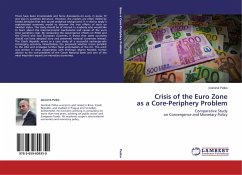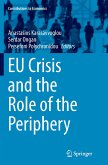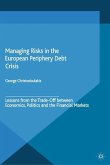There have been innumerable and fierce discussions on euro, in press, TV and also in academic literature. However, the readers are often misled by biased attitudes that lack sound analytical background. It is vital to apply a sophisticated economic model to discover the true effects of euro on member states. This study should be of interest to anybody who would like to learn about the macroeconomic mechanisms and causes of the euro zone periphery crisis. By comparing the convergence effects on PIIGS and the Central and East European countries, it shows that some countries should not have adopted euro and preserved national currencies instead. The Czech Republic serves as a case study of a successful exchange-rate converging economy. Nevertheless, the proposed solution traces parallels to the USA and envisages further fiscal unionisation of the EU. This work was written in close cooperation with Professor Martin Mandel, former advisor to the vice-president of the Czech National Bank and one of the most important experts on monetary economics.
Bitte wählen Sie Ihr Anliegen aus.
Rechnungen
Retourenschein anfordern
Bestellstatus
Storno








